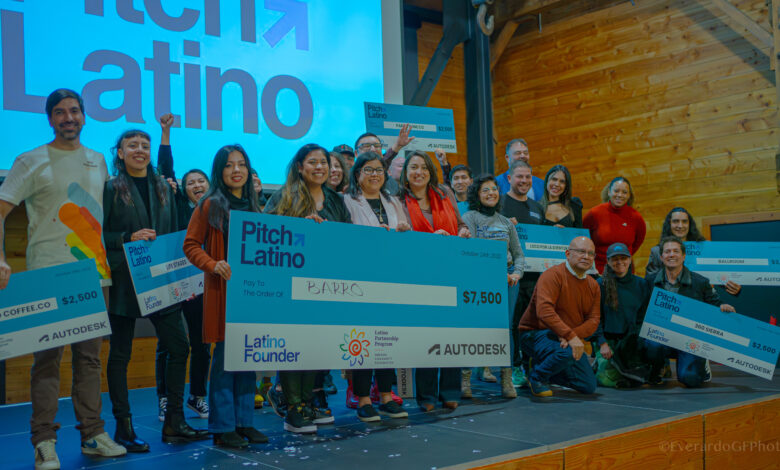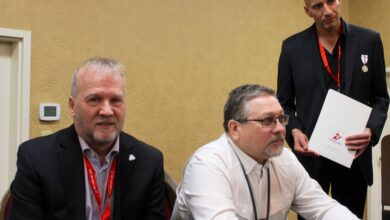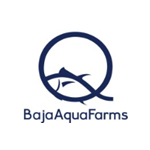9 Portland-area entrepreneurs compete for startup funds at Pitch Latino; meet their businesses

When Yoli Rabadan Barragan describes her Mexican breads, cookies, and pastries, she talks about the authentic ingredients.
But she also talks about how they bring people together.
Community was a theme Tuesday night at the second-annual Pitch Latino, a contest in which nine Latino entrepreneurs pitched their companies in front of an audience and competed for prize money. But it felt more like a celebration of new businesses than an episode of “Shark Tank.”
The participants pitched companies that sell everything from wine to coffee to social media apps to outdoor activities, with many focused on how their products bring people together. One makes a camping trailer designed to get families and friends outside.
Each of the nine entrepreneurs who pitched took home at least $2,500. Rabadan Barragan won the $10,000 grand prize after an online vote by the roughly 170 audience members.
“If I’m going to share my culture, I want them to experience it like I experience it,” Rabadan Barragan said during her pitch for Barro, her bakery that uses authentic Mexican ingredients and sells its products at the Gresham and Beaverton farmers markets.
Rabadan Barragan had never participated in a pitch contest before. She wants to use the prize money to open a storefront, either in Gresham or Portland.
The event was organized by the nonprofit Latino Founders, which also operates a 12-week business accelerator where entrepreneurs learn small business basics. There are seven participants in this year’s cohort.
The goal of the accelerator, and Pitch Latino, is to get businesses to the point where they’re attractive to even larger funding partners, including venture capital firms and commercial banks.
“Our goal is to help them scale,” said Gabriel Flores, who cofounded Latino Founders with Juan Barraza and Edgar Navas.
Pitch Latino is a sibling of sorts of Pitch Black, a similar annual event for Black-owned businesses started in 2015 by Stephen Green, who’s now executive director of Business for a Better Portland.
Audience members on Tuesday night appreciated that each business got a check and the event focused on small businesses that often get overlooked.
“We got to feel like investors,” said Mujidat Saaka, a Portland data analyst who attended. “It would be nice if this is a sign of things to come.”
There has been solid growth in Latino-owned businesses, but funding options haven’t kept pace.
The number of Hispanic-owned businesses increased 8.2% to 375,259 between 2019 and 2020, according to the U.S. Census Bureau. About 6.5% of U.S. businesses are Hispanic-owned.
But they haven’t gotten an equivalent share of venture capital funding.
Less than 1% of funding from the top 25 venture capital and private equity firms goes to Latino-owned businesses, according to a recent report from the consulting firm Bain.
The Pitch Latino event included the announcement of two significant gifts: $200,000 from the Oregon Community Foundation’s Latino Partnership Program and $125,000 from the city of Portland, a gift announced by Commissioner Carmen Rubio. AutoDesk recently gave the nonprofit $10,000 and OnPoint gave $2,500.
Tuesday night’s participants:
- 360 Sierra, which makes an ultralight camping trailer that can be pulled behind a small car, like a Honda Civic or a Tesla. The company plans to rent and sell trailers, with new trailers costing $7,500.
- Ballroom, a social media app for hyperlocal video. The app is designed to help people find friends and activities, often after relocating to a new city. The product is in testing and expected to launch next year.
- Parra Wine Co., which was founded in 2019 by Sam Parra. “I’m in an industry that comes from multigenerational wealth,” Parra said during his pitch, noting of the nearly 8,000 wine brands in the U.S., only 105 are Latino-owned. Parra described one of his upcoming releases as a hibiscus-infused wine, which elicited a collective “mmmmmmm” from the audience.
- Barro, which makes authentic Mexican breads, cookies and pastries. Founded two years ago, the company has already sold more than 10,000 breads and pastries.
- Life Stages, an app that helps users develop skills for improved wellness and mental health. The company has users in San Francisco and Portland, said founder and CEO Zulma Y. Terrones.
- Love Preferred Coffee Co.: “I know some of you are thinking, ‘Oh no, not another coffee company in Portland,’” joked founder Enrique Sanchez-Rivera. The big difference for Love Preferred Coffee: It lets customers tip the farmers who grow its coffee beans. The company launched a month ago and already has the computer hardware company Logitech as a corporate client.
- Nico’s Ice Cream: The New Zealand-style ice cream company launched in 2021 and now has two stores and is on the shelves at 100 locations between Oregon and Washington. Nico’s is made with fruit from the Willamette Valley. Founder and CEO Nico Vergara said 2023 sales should hit $1 million. By 2025, he hopes to hit $7.5 million.
- Future Gen is a career platform for Gen Z. “You know what doesn’t work (for Gen Z)?” said founder Eddie Mazariegos, in his pitch. “Boring, traditional career assessments.” The Future Gen platform is more interactive and video-driven. Mazariegos thinks it’s a $1 billion idea.
- Loco Por La Aventura works to help more Spanish-speaking people participate in outdoor activities, including climbing, hiking, kayaking, and rafting. It organized 35 activities this year. It will organize 38 next year.
Pitch Latino opened with a panel discussion that included the founders of Altitude Beverage and Photon Marine.
The entrepreneurs said there’s still funding for new businesses, but they said investors are more interested in sales and profitability than whimsical forecasts of explosive growth. They encouraged small business owners to get scrappy.
“There’s been a culling of the herd,” said Marcelino Alvarez, CEO of Photon Marine, which makes electric outboard motors.
– Matthew Kish, mkish@oregonian.com




